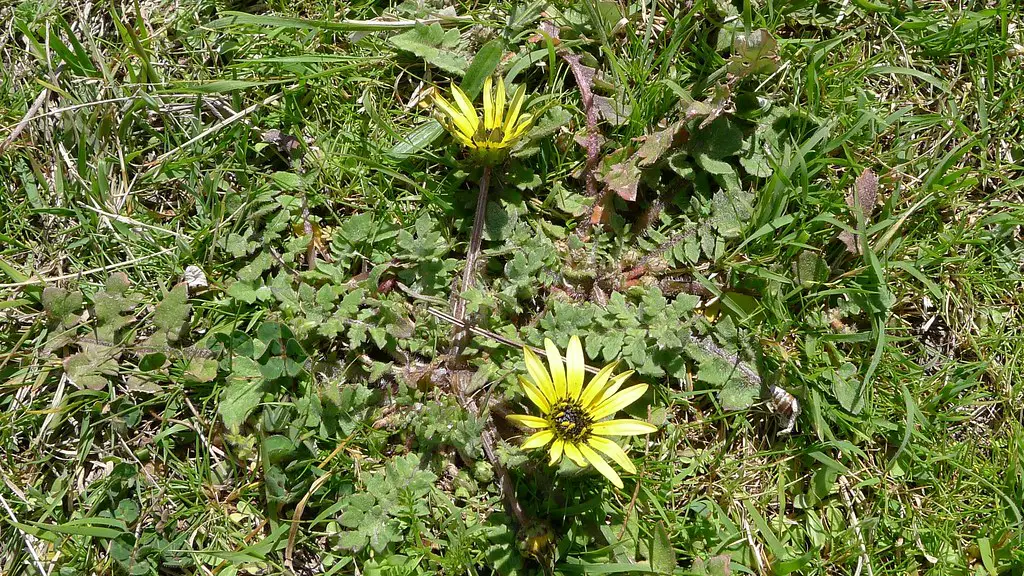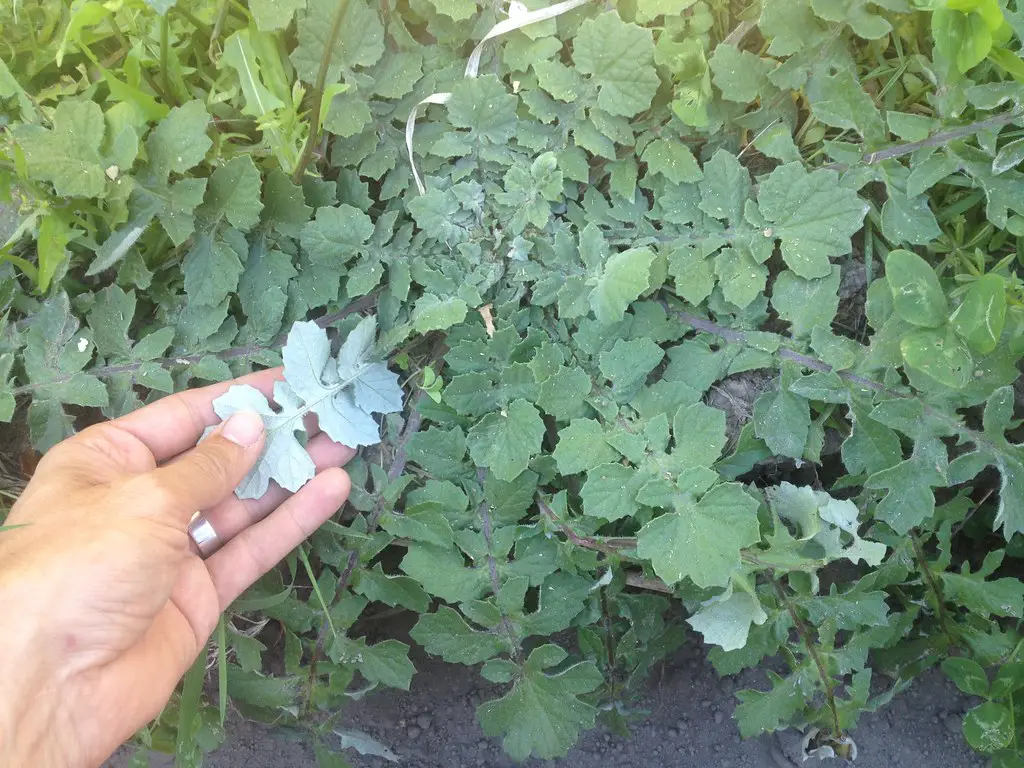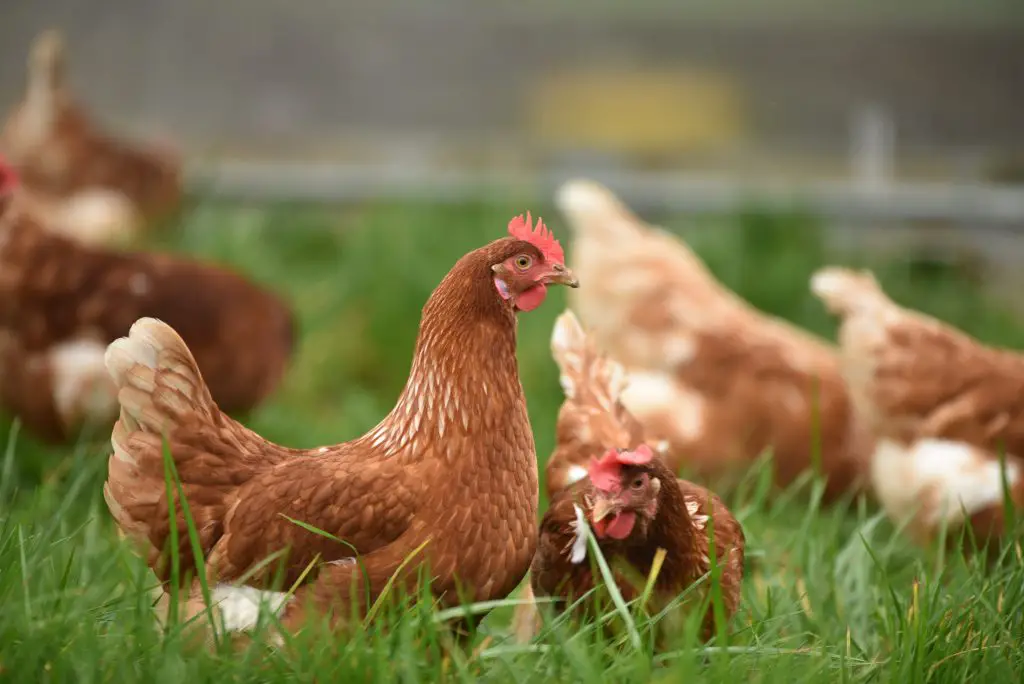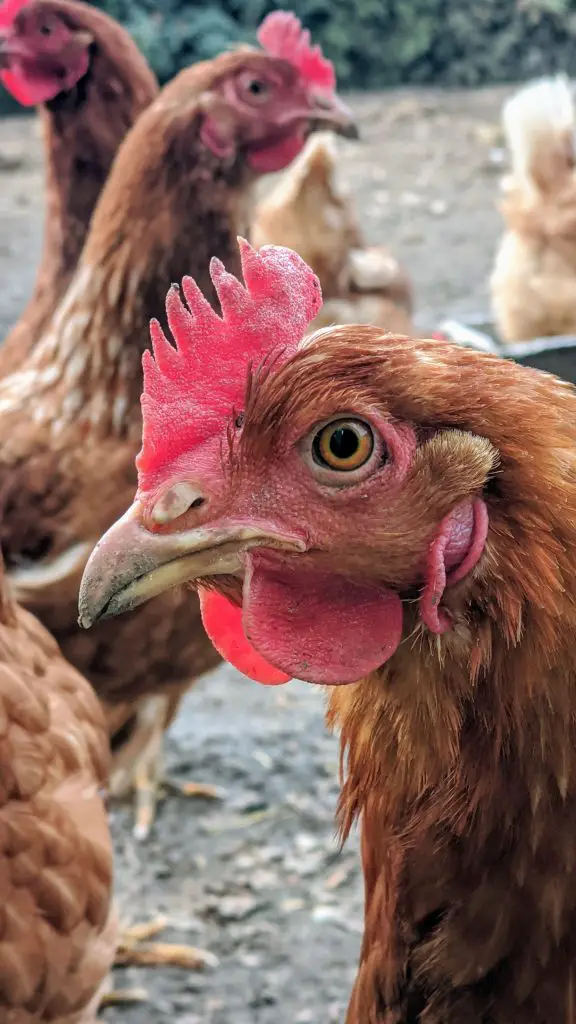The past few years have brought with them a surge of interest in adding more plant-based foods to the diets of people and pets. One such example is capeweed, which is also known as capeweed, plain treasure flower, cape dandelion, or cape marigold.
Capeweed is a type of daisy plant that grows naturally in the arid areas near the coastlines of Africa, Asia, and Europe. It’s often found growing wild, which explains why you may notice it popping up around your neighborhood.
In its natural form, capeweed has a dark green appearance with small leaves and bright yellow flowers. The leaves are covered with sharp little teeth called spinules that help to prevent animals from eating it.
In addition, these spines give the leaves a fuzzy appearance—hence the name “fuzzweed” that gets attached to capeweed from time to time. Capeweed can be found from southern Africa all the way north to Syria and west into India as well as Central America.

Will Chickens Eat Other Types Of Weeds?
While chickens are known to eat a variety of plants, chickens are not typically fond of capeweed. This is because the leaves have tiny teeth that can cause a chicken to experience pain when eating it. So if your chickens like to munch on the lawn or dig up the flower beds, they will probably leave capeweed alone.
Can You Feed Weeds That Have Set Seed To Chickens?
The answer is not really. Although you can certainly feed your chickens capeweed, it’s best to grow that plant in a pot and ensure that there’s no seed left on it before feeding it to your chickens. This will make for a more diverse diet for your poultry flock, and the weed will likely establish itself all over the yard rather than taking over one small area.
It’s always better to avoid introducing new plants into your existing flock’s environment if possible. If you do want to add capeweed to your chicken’s diet, be sure to wait until a few weeks after they’ve eaten weeds with seeds on them so they don’t suffer from any negative effects while digesting these potential toxins.

Can You Feed Chickens Too Many Weeds?
Generally speaking, it is not recommended that chickens eat too many weeds. Chickens have evolved to digest a wide variety of plant-based foods and will often eat grass along with other plants. However, it’s possible for chickens to develop nutrient deficiencies from eating too much of some types of plants.
In addition, capeweed can be toxic if eaten in large quantities. It’s best to avoid giving your chicken access to this weed in any significant quantity and only feed them small amounts.
There are a few exceptions to the rules above: if your chickens are eating quite a bit of wild grasses, you may give them a small amount of capeweed as a way of getting more nutrients into their diet. In this case, use caution so that you don’t give them too much and cause them harm.
Is Capeweed Nutritious? How To Prepare Capeweed For Chickens
In terms of nutritional value, capeweed is fairly similar to other types of leafy greens. In fact, it’s rich in beta-carotenes and lycopene which are known to have health benefits. It also provides a good source of protein, iron, and vitamin B6.
The primary concern with capeweed is its spines—these are potentially dangerous for animals that may eat it. This is the primary reason why it’s not recommended for people or pets to consume. The good news is you can feed your chickens capeweed without any issues if you know what to do and what not to do while preparing it.
First, make sure the leaves are thoroughly washed before chopping them up into bite-sized pieces (this will help get rid of any potential dirt or debris trapped in the leaves). Secondly, don’t prepare the food too long ahead of time as this could cause chemicals like nitrates to break down and could potentially make the plant toxic for animals that eat it.
To make sure you’re feeding your chickens a safe plant-based meal, follow these two simple steps: Wash the leaves thoroughly before preparing the food for your chickens Only prepare enough food for your birds at one time so there’s no chance they’ll be exposed to any potential toxins from leftovers

Can Chickens Eat Any Type Of Leafy Green Plant?
chickens can eat a wide range of the vegetables that we eat at home however you should be extremely careful in feeding them ornamental plants that are grown in your garden because there are a number of them that may be toxic.examples of commonly grown plants that are toxic include things like foxgloves delphiniums rhubarb leaves Lily of the valley and snowdrops.
to avoid these problems is advisable to stick to feeding the chickens only the scraps from plants that you would be happy to eat yourself as this is usually a pretty good guide that it is unlikely to cause a problem with the chickens.
however if you do want to feed them things from your ornamental garden is it advisable to visit the University of California website which has a detailed list of which plants are toxic and which are not this will ensure that you do not cause any significant problems with your chickens.
What Types Of Plants Should Chickens Be Eating?
As mentioned earlier in the article it is advisable to feed chickens a wide range of different vegetables along with commercially purchased chicken food. Chickens love things like silverbeet or chard, spinach, herbs such as coriander and parsley.
Additionally, you can also feed chickens fruiting plants such as zucchini, pumpkin, eggplant, and capsicum. However, I would generally avoid feeding them green tomatoes or green potatoes as they have toxins within them that can cause problems with chickens.

It is also important not to assume that the leaves of edible fruiting plants are necessarily ok for chickens to eat. The reason for this is because some of these plants such as tomato plants do have similar chemicals in them to green Tomatoes and potatoes which can cause problems.
However, one of the absolute favorites that my chickens love that I would highly recommend that you give to them periodically is the heads of sunflowers. These heads contain a huge number of seeds which are a fantastic treat for chickens to vary their diet.
Can You Feed Chickens Stale Or Mouldy Food?
In general, it is not advisable to feed chickens food that is past its best and it’s beginning to turn which can include things like stale bread. The reason for this is because the bacteria and mold within the foods will be building up rapidly so unless the chickens eat the food relatively quickly. The mould and bacteria will reach dangerous levels which can kill your chickens in some cases.
Additionally, when relatively old food is placed into the chicken pen there is also a reasonable chance that it will turn rancid very quickly and produce a possible source of disease and infection so it is generally not recommended.
Conclusion
Chickens can eat some types of weeds, but they should only be fed a small amount at a time and not be fed mouldy or stale food. The type of plants and greens your chickens should be eating are determined by their breed and the type of food they eat, but there are a few general rules that should be followed.
Relevant Articles
How To Prevent Weeds From Growing
Should I Cut Weeds Before Spraying Weed Killer?
Is Calendula The Same As A Dandelion?
